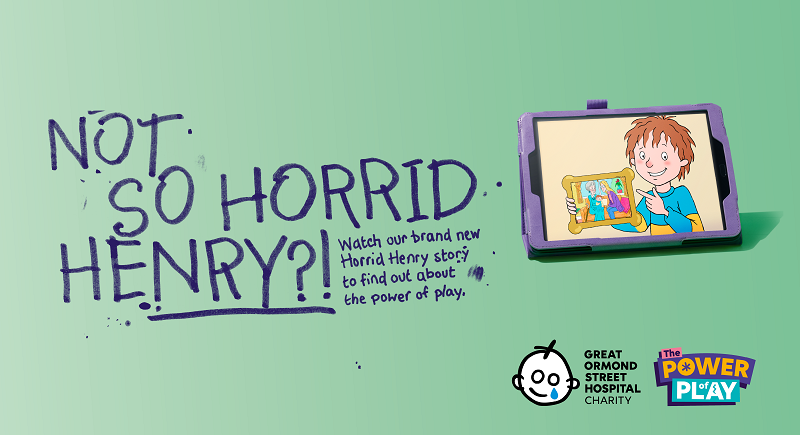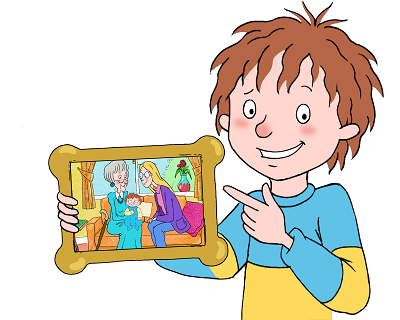
More than a third of parents (37 per cent) believe spending more time at home during the pandemic has helped them bond more with their children and feel closer as a family. However, almost a quarter of parents say their child worries about making friends (23 per cent) and has struggled to maintain relationships with extended family with whom they have not been able to spend as much time over the course of the pandemic (23 per cent). In addition, one in five parents (19 per cent) report their child is currently worried about the ongoing COVID-19 pandemic, which equates to roughly 1.1 million children in Great Britain.
To understand the current impact of the pandemic on children, Great Ormond Street Hospital Children’s Charity (GOSH Charity) and YouGov polled 1017 British parents of children aged 18 and under across Great Britain, the research also reveals that 23 per cent of parents agree that their child’s confidence has been reduced by restrictions on where they could go and what they could do as a family during earlier lockdowns.
An effective way to build children’s confidence is through play. Play is led by the child and provides space in which they can freely choose how to be creative and to enjoy themselves. It also opens up opportunities to explore risk in a safe setting that helps build skills that are vital now and in the future. More than a third (37 per cent) of parents agreed that a lack of time to play with family and friends during the pandemic has had a negative impact on their child.
During the pandemic many choices for children have been taken away for their safety and the safety of those around them, and the space and time to play has never been more important to protect. Play is a valuable way to boost children’s wellbeing, another is keeping in touch with loved ones and many families have turned to digital technology to help them maintain relationships with more distant family members and friends during the pandemic.
But for parents of younger children, struggles to build these important bonds are of particular concern, with almost a third of parents to children aged four and under indicating that challenges with maintaining relationships with family members they don’t see as much has been one of the top negative impacts of the pandemic on their child.
GOSH Charity is releasing the research as part of a campaign to share the “Power of Play” with families across the country, as “play” can help build children’s confidence and resilience to tackle day-to-day worries, such as concerns over making friends and missing loved ones, overcoming worries and anxieties, as well as helping families to bond and have fun together.
The Charity’s digital Power of Play Hub is packed full of free inspiring ideas and fun activities to bring the incredible power of play to children and families across the UK. This November, GOSH Charity is adding extra resources to its Power of Play offering, including a brand new and exclusive short film from Novel Entertainment titled Horrid Henry and the Groovy Grandma. The film was written by Novel Entertainment’s co-founder and creative director Lucinda Whiteley and directed by Gary Andrews, with music by Lester Barnes. George O’Shaughnessy, Oxford-based therapeutic arts and well-being facilitator, and Alex Bowie, socially engaged artist and school programme manager at Dulwich Picture Gallery consulted on the project.
When Henry finds his mum looking through her memory box, it leads to a conversation which not only helps them to express and understand their feelings about the loss of Henry’s grandmother but also to explore the power of play as a way of being together. Henry and his mum use a memory box, a technique GOSH’s play team uses with patients and their siblings at the hospital to help children deal with loss.
Of the parents polled in the YouGov research, one in 10 (10 per cent) parents of children aged between five – 11 say their child worries more about the death of older family members as one of the top negative impacts of the pandemic, which equates to roughly 560,000 children in Great Britain. GOSH Charity hopes this animation along with its other resources will support children affected by or worried about the loss of a loved one.
The Charity’s Power of Play resources are supported by Matt Lucas and Olivia Colman and have been specially created to share the expertise of Great Ormond Street Hospital (GOSH)’s play specialists, who use play techniques to support seriously ill children at GOSH to deal with worries including isolation, loss, and anxiety.
Another new addition to the Power of Play Hub is an audio story from CBeebies stars JoJo & GranGran. They join stories, audiobooks and resources including Peter Pan, Alice in Wonderland, and The Beano’s Dennis and Gnasher.
Danielle McCrossan, mum to five-year-old Jake who was diagnosed with a cancerous brain tumour in January 2020, agrees that missing out on time with friends has had an impact on her son. Jake spent time in isolation at Great Ormond Street Hospital (GOSH) and at home recovering from his treatment. Danielle says: “I know he misses playing with children his own age. Through our experience of working with the play team at GOSH, I now realise and appreciate the vital role play can have during difficult experiences, like being in hospital, or being stuck at home in lockdown,” says Danielle. “Even though it can be a dark time, play offers you some light, allows the child to express themselves and gives them the opportunity to be a child.”
Great Ormond Street Hospital, consultant clinical psychologist and joint specialty lead for psychological and mental health services, Mandy Bryon says: “Children are often resilient by their nature, and this is something we see time and time again at GOSH where we support children to adapt to medical treatments, operations and hospital stays. Our expert play team at GOSH, funded by GOSH Charity, are such an important part of creating an environment to build and maintain our patients’ resilience and sense of fun.”
“The country’s children have faced many different challenges over the course of the pandemic, and we think it is important to share the expertise of our amazing play team with families across the UK to help make their day-to-day lives a little easier.”
Great Ormond Street Hospital deputy head of play Sian Spencer-Little added: “It is really positive to see many families have been able to bond more through additional time spent together, but we also recognise that many families had periods of separation as well and needed to explore different ways they were able to stay in touch. We know from our work at GOSH that play is such a powerful way to create connections, it really is a ‘superpower’ that helps children and young people cope with the changing world around them.”
“Many children will have spent less time with loved ones due to important social distancing measures that help keep us all safe, and our Power of Play digital hub has a fantastic set of resources to help them make sense of this and other day-to-day worries. For children who are feeling less confident or unsure of themselves, or worried about whether Covid-19 or another illness might make someone they love poorly, I’d really encourage parents to explore and access our resources which include everything from creating memory boxes, to using glove puppets to explore building friendships, these really can make a difference.”

